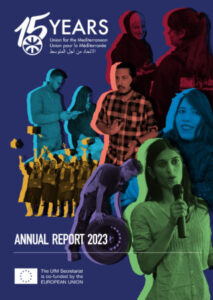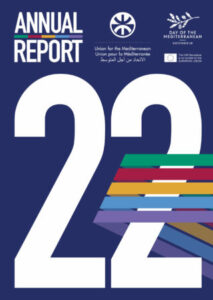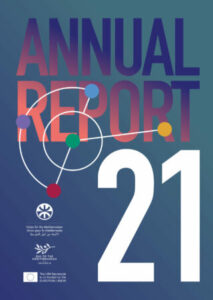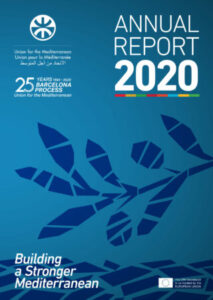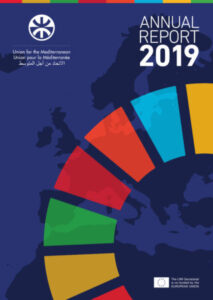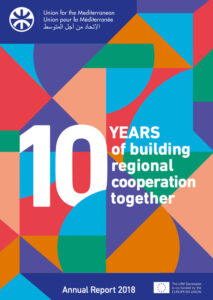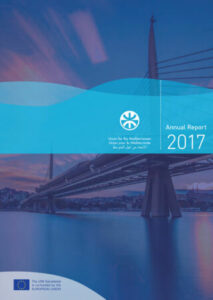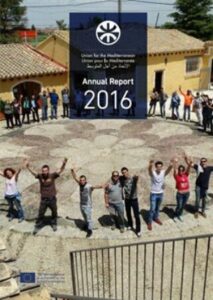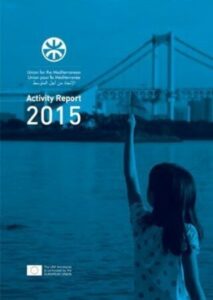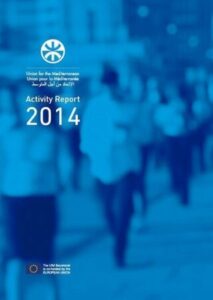
Transparency at
The Union for the Mediterranean (UfM) seeks to promote transparency as a cornerstone of its work, fostering trust, accountability, and credibility among Member States, partners, and citizens. By ensuring openness in its governance, financial management, and operations, the UfM aims to enhance confidence in its decisions and effectiveness.
Committed to this principle, the UfM provides clear and accessible information on its activities, governance structure, financial performance, ethical standards, and access to information.
Governance
The Union for the Mediterranean (UfM) is an intergovernmental organisation that promotes regional cooperation, facilitates dialogue, and implements concrete projects and initiatives to advance inclusive development, stability and integration in the EuroMediterranean region. Its decision-making process is based on consensus and equal footing among its 43 Member States, ensuring inclusivity and shared ownership.
The UfM operates under a unique co-presidency system, jointly held by the EU and Jordan since 2012, ensuring balanced representation and leadership from both the northern and southern shores of the Mediterranean. This system is supported by Senior Officials from UfM Member States, typically high-level representatives from ministries of foreign affairs or other governmental bodies.
The UfM Secretariat
Established in 2010 in Barcelona, the UfM Secretariat ensures operational follow-up of the regional priorities and supports the implementation of region-wide cooperation projects and initiatives.
The Secretary General oversees the UfM’s operations, ensuring that transparency principles are upheld. He reports to Member States and integrates these principles into all aspects of the organisation.
Statutory roles such as the Secretary General and Deputy Secretaries General are appointed at the institutional level by Member States.
The UfM Secretariat is structured into six sectoral divisions covering key areas of regional cooperation. The Secretariat includes seconded staff from Member States, contracted personnel, and interns. Hiring processes are competitive and adhere to established regulations to ensure fairness and inclusiveness.
Financial management
The UfM is financed through contributions from the European Comission, Member States, and cooperation agencies such as Sweden (SIDA), Germany (GIZ), and Spain (AECID). Member States contribute voluntarily, and the European Commission matches these contributions. Additionally, the three agencies fund specific initiatives and activities on the ground.
The UfM ensures accountability in its financial management by making detailed budget reports and audited financial statements publicly accessible. Regular internal and external audits assess compliance and identify areas for improvement. Audit reports are made publicly available to demonstrate financial integrity.
The UfM remains open to collaborating with more national development agencies from its Member States to further expand its impact and reach.
Ethics and code of conduct
The UfM upholds high ethical standards through a dedicated Code of Conduct, ensuring integrity, transparency, and accountability in all its activities. Key documents outlining these principles include the UfM Secretariat Anti-Fraud & Anti-Corruption Policy, UfM Secretariat Code of Conduct, UfM Oversight Committee Rules of Procedure, and the FAQ on the Oversight Committee and the Ethical Line.
Oversight committee
The UfM Oversight Committee is an independent and expert-advisory body which assists the UfMS with respect to the matters covered by the Code of Conduct, the AntiFraud & Anti-corruption Policy of the UfM Secretariat and related whistleblowing.
Access to information
The UfM was launched in 2008 as a continuation of the Barcelona Process (1995), reinforcing regional cooperation between European and Mediterranean countries. It builds on this legacy to promote dialogue, stability, and sustainable development in the region. Key milestones and founding documents include
- Euro-Mediterranean Conference, Barcelona Declaration – Barcelona, 27/28 November 1995 – Download
- Paris Summit for the Mediterranean, Joint Declaration – Paris, 13 July 2008 – Download
- UfM Ministerial Conference, Final Declaration – Marseille, 3/4 November 2008 – Download
- Headquarters agreement – Madrid, 4 May 2010 – Download
- Statutes of the Secretariat of the Union for the Mediterranean – Barcelona, 17 July 2018 – Download
Mandate and annual reports
Opportunities
The UfM ensures openness and fairness in its hiring and procurement processes:
Vacancies: Information on current job openings at the UfM, including internship opportunities, secondments, and full-time positions.
Public Tenders: Details on procurement opportunities, including tender notices, procedures, and awarded contracts
